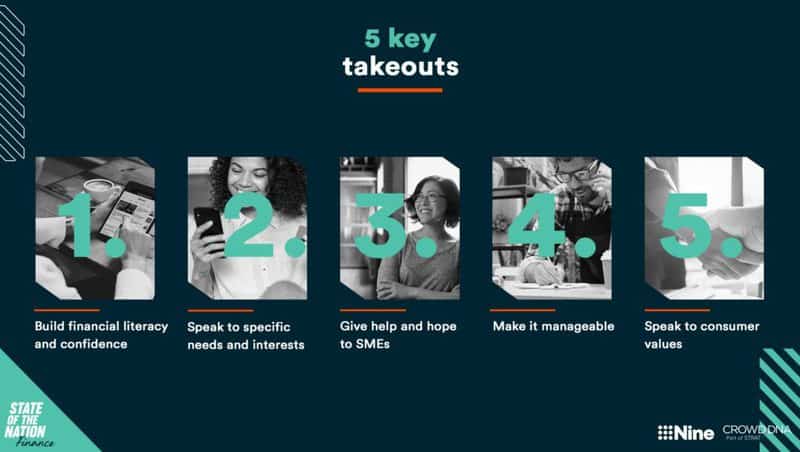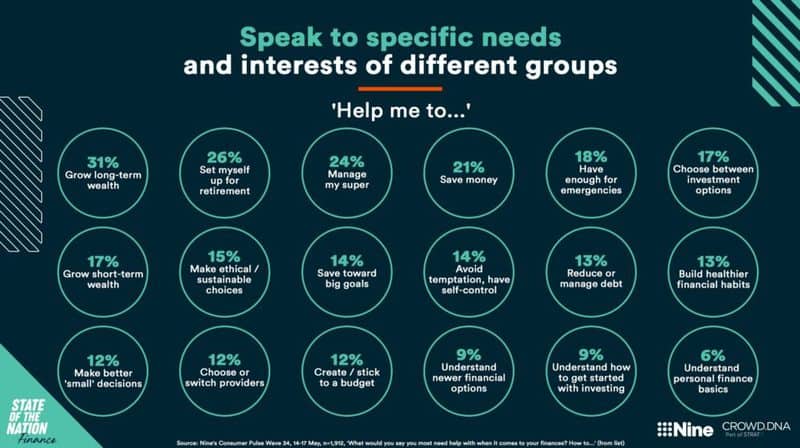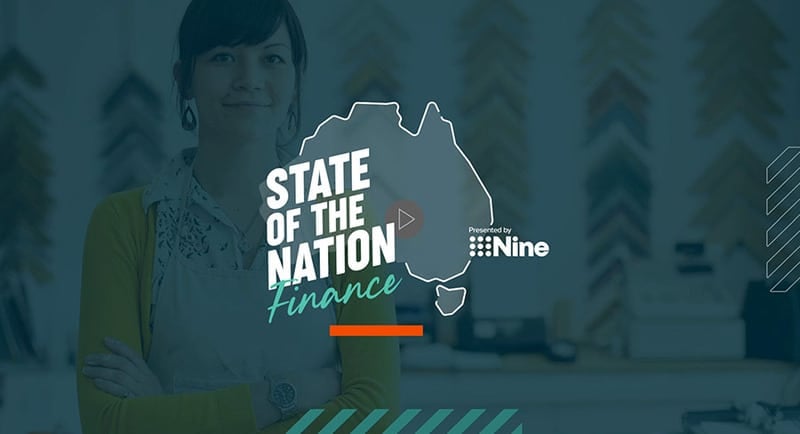New research by Nine and Crowd DNA has highlighted the impact the COVID-19 global pandemic and ensuing economic uncertainty has had in the minds and perceptions of Australian consumers.
Launched at Nine’s State of the Nation Finance event, the research argues that the pandemic has significantly heightened consumer focus on their finances, but also provided brands and marketers with the opportunity to help consumers take control of their own destiny and feel safe while having the confidence to make decisions that will sustain their financial literacy and security.
Michael Stephenson, Nine’s chief sales officer opened the event, hosted at Ashurst in Sydney’s Martin Place.
Nine’s director of strategy, insights & effectiveness, Toby Boon, then shared the research and insight study.
Deputy companies and market editor for AFR, James Daggar-Nickson hosted a panel comprised of finance commentator and author, Effie Zahos; co-founder and co-CEO of Judo Bank, Joseph Healy; CEO of Humm Group, Rebecca James; and head of Australian economics at Commonwealth Bank, Gareth Aird.
Ben Thomas, client director of finance followed the panel and talked about the Nine finance publishing network.
Then liana Dubois, director of Powered, spoke about the power of the Nine brands, with case studies including Commonwealth Bank and Suncorp.
Finally, Jo Clasby, director of client partnerships – publishing, gave the closing remarks.
“It’s no secret that economically the past 18 months have been a roller coaster,” said Michael Stephenson. “Our research has highlighted that a significant number of Australians still don’t feel confident managing their finances and are looking for brands that can assist them with financial education, advice and retirement planning.”

The research examined consumer perceptions with a range interviews, social listening and quantitative research via Nine’s own cross-platform audience panel, Consumer Pulse.
Among insights the research highlighted was a significant gender gap when it came to financial literacy and confidence in making “good decisions with money”. The research found there was a 113 per cent increase in the online conversation around financial literacy since the pandemic began, with almost two-thirds driven by women.
The research highlighted how consumers were avoiding a “set and forget” mentality and instead seeking out new ways to grow their wealth. This has helped to drive a boom in cryptocurrency and alternative financial options, with Nine’s research also finding that consumers can struggle to know where to turn for reliable financial news and some, particularly men, are turning to unverified, non-traditional online sources for guidance.

In particular, there was an opportunity for brands in the financial planning, investment and superannuation space around developing a conversation with consumers that is designed to build trust and a long-term relationship.
When panels were asked what areas they most needed help with, consumers nominated growing long-term wealth, retirement/financial planning, and day-to-day management of super as their biggest areas of need.
“Our research demonstrates that there has never been a better time for brands to connect with our audiences to improve their financial literacy,” said Stephenson. “Those brands that are able to speak to the specific needs and interests of Australians in an accessible, easy to understand way, that avoids financial jargon, will attract new customers and increase market share.”
